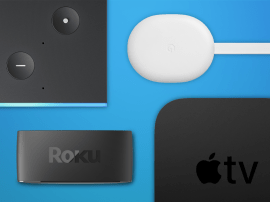Samsung bada OS – what’s it all about?
Bada, Samsung's response to the likes of Android and Symbian, was officially unveiled today, but at an event that was supposed to introduce the new OS

Bada, Samsung’s response to the likes of Android and Symbian, was officially unveiled today, but at an event that was supposed to introduce the new OS in all its glory, it actually seemed to leave a lot of its attendees saying one thing – huh?
Introduced amidst buzz words and a rather flashy presentation, the Samsung team and their invited guests did a lot of talking about the platform, but failed to do what any of us really went there for – to see it in action.
But what is bada? In short, and after a bit of digging, it seems to be little more than the Samsung proprietary OS suped up, made open source and given a name.
That’s not to say it’s a bad thing – going open source is always a positive move, and Samsung’s SDK sounds as if it will let developers get right in to all the phone’s capabilities for no holds barred apps.
For example, bada will support sensor-based, context-aware apps, so developers will be able to tap into and make use of various sensors on the phone such as accelerometer, tilt, weather, proximity and activity, some of which developers aren’t allowed to use on the iPhone for example.
In-app purchasing is in, as is location-based SNS, but developers will also have the unique ability to use the phone’s functions, such as make calls or send messages for example, within the app itself – another feature which hasn’t been seen on Android or iPhone as yet.
Of course the question is, how do you get the developers to take the time for the bada platform when they could be developing for the big guys like Android and the iPhone? Well, a share in the $2.7m prize fund oughta do it.
Samsung is launching a developer’s challenge for developers across the world to create apps for bada and get in with a chance of winning a slice of the rather alluring price fund. These will then launch in a new bada app store when the first bada handset is released next year.
Ultimately though, Samsung is developing bada with an aim of “smartphones for everyone”, and is promising bada handsets will be easy to use, affordable, and available on a large scale across the world.
Whether it will challenge the likes of Android and iPhone, I’m not completely sold. I think bada will be more than likely saved for mid-range phones which won’t bother the high-end market.
Touchwiz will remain over the top of bada as it always did over the old Samsung OS, and the development of this to the next level will almost be as important as bada itself – a great OS is nothing without a usable UI.
Samsung wouldn’t say either way if it was continuing to develop handsets on other platforms or not, but it does seem that bada will be the main focus, at least on their touchscreen handsets, next year.
Of course, what those handsets will be is another mystery, but here’s hoping that the hardware and software come together to prove the sceptics wrong in the early part of 2010 when the first bada handset is due to be released.



